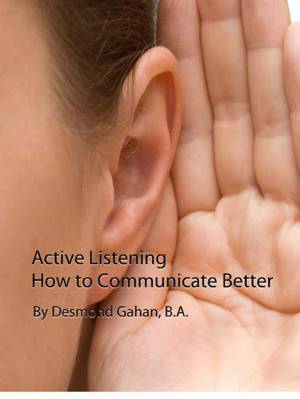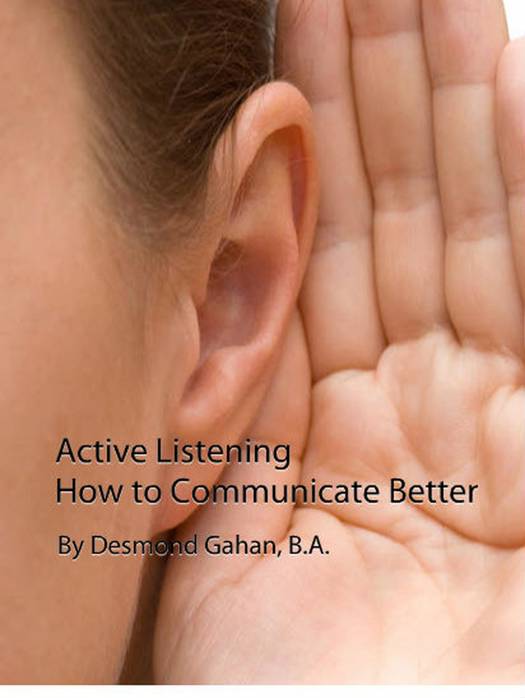
- Retrait gratuit dans votre magasin Club
- 7.000.000 titres dans notre catalogue
- Payer en toute sécurité
- Toujours un magasin près de chez vous
- Retrait gratuit dans votre magasin Club
- 7.000.0000 titres dans notre catalogue
- Payer en toute sécurité
- Toujours un magasin près de chez vous
Description
The way to improve your listening skills is to practice "active listening." This is where you make a conscious effort to hear not only the words that another person is saying but, more importantly, try to understand the complete message being sent.
In order to do this you must pay attention to the other person very carefully.
You cannot allow yourself to become distracted by whatever else may be going on around you, or by forming counter arguments that you'll make when the other person stops speaking. Nor can you allow yourself to get bored, and lose focus on what the other person is saying. All of these contribute to a lack of listening and understanding.
Tip:
If you're finding it particularly difficult to concentrate on what someone is saying, try repeating their words mentally as they say them – this will reinforce their message and help you stay focused.
To enhance your listening skills, you need to let the other person know that you are listening to what he or she is saying. To understand the importance of this, ask yourself if you've ever been engaged in a conversation when you wondered if the other person was listening to what you were saying. You wonder if your message is getting across, or if it's even worthwhile continuing to speak. It feels like talking to a brick wall and it's something you want to avoid.
Acknowledgement can be something as simple as a nod of the head or a simple "uh huh." You aren't necessarily agreeing with the person, you are simply indicating that you are listening. Using body language and other signs to acknowledge you are listening also reminds you to pay attention and not let your mind wander.
You should also try to respond to the speaker in a way that will both encourage him or her to continue speaking, so that you can get the information if you need. While nodding and "uh huhing" says you're interested, an occasional question or comment to recap what has been said communicates that you understand the message as well.
Spécifications
Parties prenantes
- Auteur(s) :
- Editeur:
Contenu
- Langue:
- Anglais
Caractéristiques
- EAN:
- 9781386245865
- Date de parution :
- 18-06-17
- Format:
- Ebook
- Protection digitale:
- /
- Format numérique:
- ePub

Les avis
Nous publions uniquement les avis qui respectent les conditions requises. Consultez nos conditions pour les avis.






